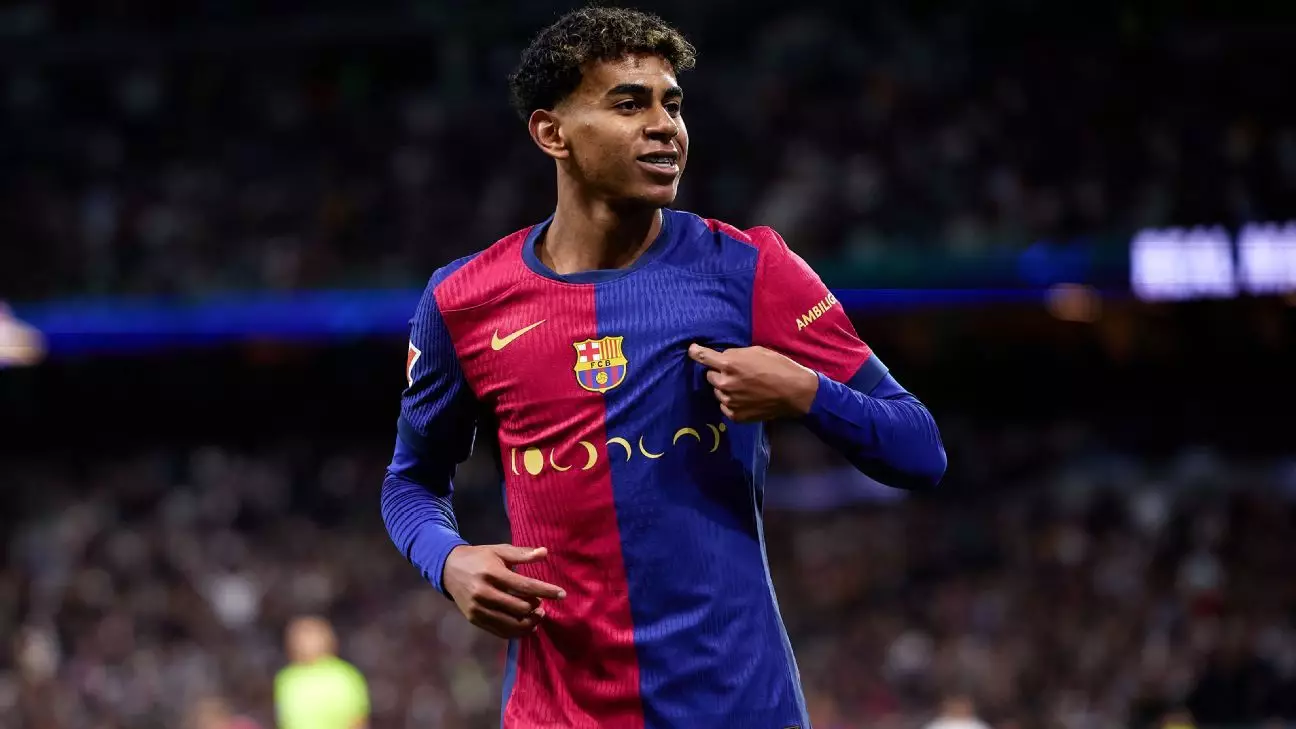The 2023 football season marks a significant milestone in the world of soccer: it is the first time since 2003 that neither Lionel Messi nor Cristiano Ronaldo has been nominated for the prestigious Ballon d’Or. This change signifies more than just the absence of two towering figures; it heralds the closure of an era that redefined expectations and standards in the sport. Though both players have been away from their peak performances for a while, their astounding careers continue to overshadow current players, challenging them to achieve a level of excellence that is increasingly rare.
While the Ballon d’Or voting is often critiqued for its apparent inconsistencies, it nevertheless serves as the main historical record of football’s evolution over the years. There have certainly been controversies—Dani Carvajal’s fourth-place finish raised eyebrows among fans and analysts alike. Despite the criticisms, this award encapsulates the achievements of the most talented footballers, and Messi and Ronaldo’s absence from this year’s nominations highlights the shifting dynamics within the sport. It signals a new chapter and invites scrutiny of new and emerging talents who aspire to claim the global stage.
The era defined by the Messi-Ronaldo rivalry has posed a unique set of challenges for budding stars. Players who grew up idolizing either Messi or Ronaldo face expectations that seem insurmountable. With Ronaldo last appearing in the top three of Ballon d’Or voting in 2019 and Messi’s noteworthy accolades overshadowed by limited impact post the FIFA World Cup in December 2022, it becomes clear that the generation of players hailed as the heirs to their legacies has yet to flourish under the pressure.
To quantify the trajectory of this shifting power dynamic in soccer, we can analyze the so-called “Messi-Ronaldo Line.” This measure tracks the combined rate of non-penalty goals and assists from the ages of 17 to 35 for both players. This comprehensive dataset allows for informed comparisons with current players, as it considers their age relative to the benchmarks set by Messi and Ronaldo during their own careers.
From young prodigies like Barcelona’s Lamine Yamal, who has the potential to be mentioned in the same breath as the legends, to other emerging talents in Europe’s Big Five leagues, the question remains: Has anyone truly surpassed the lofty standards set by Messi and Ronaldo? The statistics reveal a pressing reality; virtually no player underperforming under the age of 24 has been able to make a case for breaking through the Messi-Ronaldo threshold.
Assessing the data gathered, one of the few standout players this year is Bayern Munich’s Jamal Musiala, whose numbers reveal promising potential. He demonstrates a quality that resonates with Messi and Ronaldo in their prime—an ability to dribble past defenders while also showing signs of developing a keen sense of attacking play. However, a historical trend shows that while some players excel at dribbling, few can cultivate the artistry and precision required to elevate them to greatness similar to Messi or Ronaldo.
As the narrative unfolds, it is essential to look at other players currently in their prime. While some, such as Mohamed Salah, remain impactful, their achievements pale in comparison to the monumental seasons produced by Messi and Ronaldo. This stark contrast emphasizes the generational talent that defined a significant portion of soccer history.
The relentless comparisons serve to highlight the juggernauts’ brilliance while also diminishing the accomplishments of this new generation. Messi and Ronaldo raised the bar to an impossible height, making mere flashes of brilliance from current players appear mediocre. It becomes increasingly evident that the skill sets observed in top talents today are simply no match for the multifaceted arsenal possessed by the two giants of the game over the course of their careers.
As we analyze the 2024 season statistics, the data reaffirms that while players display potential, the all-encompassing combination of skills exemplified by Messi and Ronaldo remains unmatched. Their ability to evolve their gameplay, adapt to challenges, and maintain consistency over nearly two decades remains extraordinary.
The end of Lionel Messi and Cristiano Ronaldo as dominant forces marks the conclusion of an unprecedented era in soccer. While debates surrounding individual accolades may continue, the truth is that the foundations of the sport have shifted dramatically. The new generation of players not only must strive to meet the legacy of their predecessors but also carve out new narratives that redefine what excellence looks like in modern soccer.
As we look forward, the future of the sport lies in the emergence of fresh talent that inspires hope and showcases the incredible beauty of football—one that may someday replicate, or possibly even exceed, the illustrious feats of Messi and Ronaldo. But for now, as we reflect on the impact of their careers, it is clear that comparisons will endure in the quest for greatness, and football continues to evolve in exciting and unpredictable ways.

